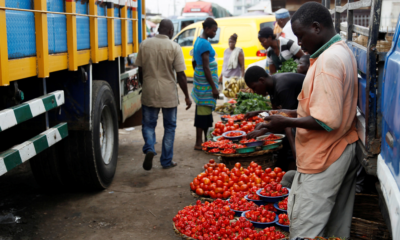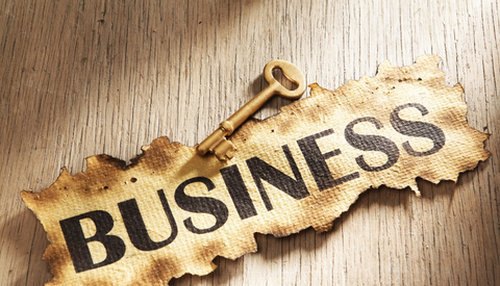NEWS
How To Start A Lucrative Charcoal Export Business In Nigeria

The gradual global shift from the mass distribution of oil products has opened up opportunities in several other energy sectors. This trend has set a pace for the widespread demand of cheaper energy sources for households and communities. Since the cost of kerosene, diesel, and petrol still somewhat carry high market figures, African and several other individuals in the developing world seek cheaper alternatives. One lucrative source is charcoal, and this has given rise to a large charcoal export industry
Charcoal provides a low-cost method of cooking for local communities around the developing part of the world. Most of the locals living in these small communities cannot afford to use cooking gas, kerosene, or even electric cookers with the absence of electricity. And as a result, this Charcoal alternative represents more than 80% of the total energy used in preparing household meals in Africa.
With a large charcoal market existing in Europe, America, & Asia, the global worth continues to retain it’s multi-billion Dollar value. This poses a huge opportunity for deep-pocket investors looking to make investments in an energy sector. For instance, 70% of the slightly over 60,000 metric tons of charcoal used yearly in the United Kingdom comes from Africa. The value of a ton of charcoal is between 200 Euros to 210 Euros. A charcoal supplier exporting between 1,000 to 10,000 metric tons yearly would be generating an annual revenue between the values of 200,000 Euros to 2,000,000 Euros.
How Is Charcoal Made, And In What Areas Of Nigeria?
Charcoal is largely made from tropical woods; although some variations like charcoal briquettes are made from coconut shells. During the production process, wood is burnt at really high temperatures in the absence of air. This production process is termed carbonization.
The production of charcoal is done in various communities and states around Nigeria. Some are Kaduna, Jos, Minna, Egbe, Jebba, Oyo, and several others. These areas are high production centers, but production can also be carried out in most other parts of the country.1
Is Investing In The Charcoal Export Business Ethical?
The arguments on the ethical rudiments of the charcoal business stands valid. While venturing into this energy sector would mean mass deforestation, global warming, and several other demeaning factors, without the charcoals been sold in the local markets, many Africans living in the local communities would be unable to afford high-cost energy resources like kerosene and cooking gas to prepare their daily meals. 80% of the individuals who use this charcoal products live below the poverty line, and as such, cannot be forced to use products they cannot afford. This unfortunate situation causes them to use the low-cost alternatives available to them.
How Then Do I Make Money From The Charcoal Export Business In Africa?
The charcoal industry poses several opportunities to energy-savvy individuals. This large industry can be tapped from several fronts, but here are three (3) business opportunities in the charcoal industry:
1). Charcoal Production:
Production of charcoal been a delicate process, requires specific individuals who are skilled in the craft, and are willing to get their hands dirty. The production is a highly labour-intensive process. Trees have to be fell, chopped, and burnt at high temperatures. Since most exporters can’t get involved with this stressful process, they leave the whole work-flow to the charcoal producers, who in turn sell to them in large quantities but, at low prices.
2). Charcoal Export & Distribution:
This is the most popular business opportunity exploited in the charcoal industry in Nigeria, and around the world. With tens of thousands of metric tons of charcoal exported yearly from Nigeria, the revenues generated makes the sector lucrative. Here, the sales could be done by local traders in the market, or by large players exporting the charcoal products outside the country.
Before charcoal can be exported, certain standards must be met. For example, the moisture content, the fix carbon, the ash contents, and several others need to be right, based on the buyer’s specifications. An inspection by the buyer’s agents or the buyer themselves, could lead to a rejection of the full shipment if they don’t meet the required standards.
The charcoal prepared for export must also be packaged to the buyer’s taste. They could be packaged in small sizes to enable local buyers purchase easily for their needs, or they could be packaged in bulk, weighing different sizes; anywhere from 5kg and above, and then placed in containers ready for shipment by a shipping company, and delivered to the buyer anywhere in the world.
Starting out in your distribution and export of charcoal products could cost you between 300,000 ($1000) t0 1,000,000 ($3334) Naira. With a signed order for shipment by a buyer, the supplier could approach the Nigeria’s Bank Of Industry (BOI) for a loan to easily fulfill the order. It’s a lot easier to get loans and grants in Nigeria when there’s an existing request or customer base for your charcoal products than when you’re just starting out and seeking random capital.
3). Charcoal Appliances:
Charcoal appliances could be charcoal stoves and other devices that make the charcoal production and usage process easier. An example is a Ghanaian company called Toyola Energy. They manufacture charcoal stoves and sell them for about $8 a stove. These energy-efficient stoves make charcoal usage easier for the locals who live in communities and base their cooking energy source majorly on charcoal.















